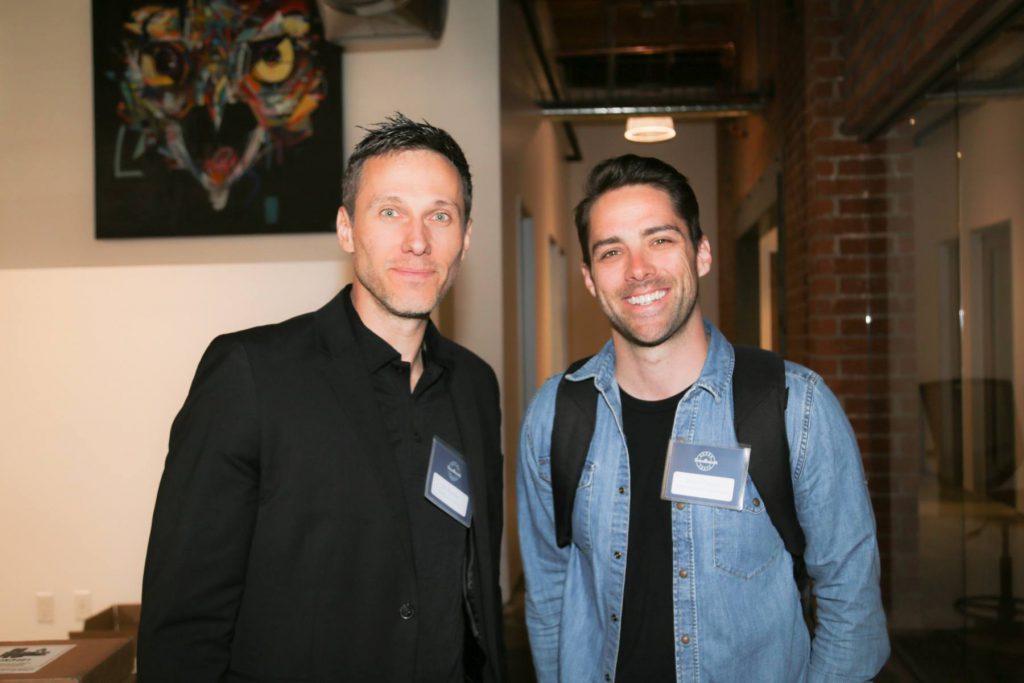Over the past two years, there has been a 690 percent increase in cannabis jobs. The industry is rapidly growing, but it’s not without its challenges. Many employers and employees have to learn strategies as they go and pave their own road to success amidst the “green rush.” Without others preceding them, certain companies have managed to make a name for themselves and set the standard for those following in their footsteps.
ForceBrands was proud to host a roundtable event in April, moderated by ForceBrands’ Senior Client Strategist Devin Penhall and Client Strategist Mike Sekula, that allowed leading marketers in cannabis to share their ideas, challenges, and creative solutions.
“This was truly exceptional given that in such a highly regulated industry, many marketers hold their data and strategy close to the vest,” Liz Whiting, Head of Marketing at Daily High Club and one of the roundtable speakers, said.
Other speakers included Cheyne Nadeau, Experiential Marketing Manager at Canndescent; Lisa Hurwitz, CMO at Grassroots; Hannah Davis, CMO at Mammoth Distribution; Jim Baudino, VP of Corporate Relations at Merry Jane Media; Kimberly Dillon, CMO at Papa & Barkley; Maggie Connors, Founder and CEO of Besito; Blake Mitchell, Principal at INTERACT; and Madison Fiore, Director of Growth at Hawke Media.
Here are some of the key learnings we took away from the roundtable’s discussion.
1. Forging relationships is key
As the cannabis industry grows, it is attracting new demographics, such as women and seniors. It is important to create personal connections, which can be built through one-on-one phone calls and email exchanges. Leading companies in cannabis are all about customer service and getting to know their customers through conversations. Leaders in cannabis are also actively implementing ambassador programs (learn how to use them for your business here) because they are proven to create more of a personal than a transactional connection.
2. Harness the power of social media
Social media is an important tool in any business, regardless of the industry. Cannabis companies are not shy when it comes to using LinkedIn, Instagram, and Twitter to promote their products and educate potential customers about CBD. They invest in highly skilled digital marketing teams that create custom campaigns that comply with certain social media regulations. Finding the right audience takes time, and that is why many leverage micro-influencers. It is important to identify influencers who can help spread the word among the desired audience and get rid of the stigma in smaller markets.
3. Email is king
While social media is great for promoting products and building your audience, there are many rules and regulations to abide by. And with algorithms constantly changing, the influence of social media can get lost. “Go through it with your finance team and figure out where your revenue and your profits are coming from,” Davis of Mammoth Distribution said. “Email is a huge missing mark.” Social networks are great but a newsletter belongs solely to the brand.
4. Play by the rules
Every state and every county is different, which can sometimes make it challenging for cannabis companies trying to grow their businesses and take it to the next level. There are variations in policies and laws across states that companies should be able to adjust to. Flexibility is key. When it comes to promoting cannabis products on social media, there are plenty of restrictions that are changing on a regular basis as well. “Being across so many different states, we’ll put a post up and it will get taken down in Maryland, but it will stay up in Illinois, and there’s often no rhyme or reason as to why that’s happening,” Hurwitz of Grassroots said.
5. Educate people
Even in 2019, there is still a negative stigma surrounding cannabis. That is particularly true in more rural areas that are far from the CBD-infused latte craze that permeates many big, progressive cities. Cannabis companies tap into a variety of markets when it comes to brand ambassadors and influencers: yoga instructors, chiropractors, massage therapists, etc. Many companies organize retreats where they educate health and wellness professionals and influencers about the health benefits of CBD and provide everyone with a certification. Some brands host in-house lunch-and-learn sessions and fly in New York editors to cannabis farms to familiarize the media with this relatively new vertical.
If you are looking to work in this rapidly evolving industry with great compensation rates and benefits, head to ForceBrands’ HerbForce job board to see current opportunities.











